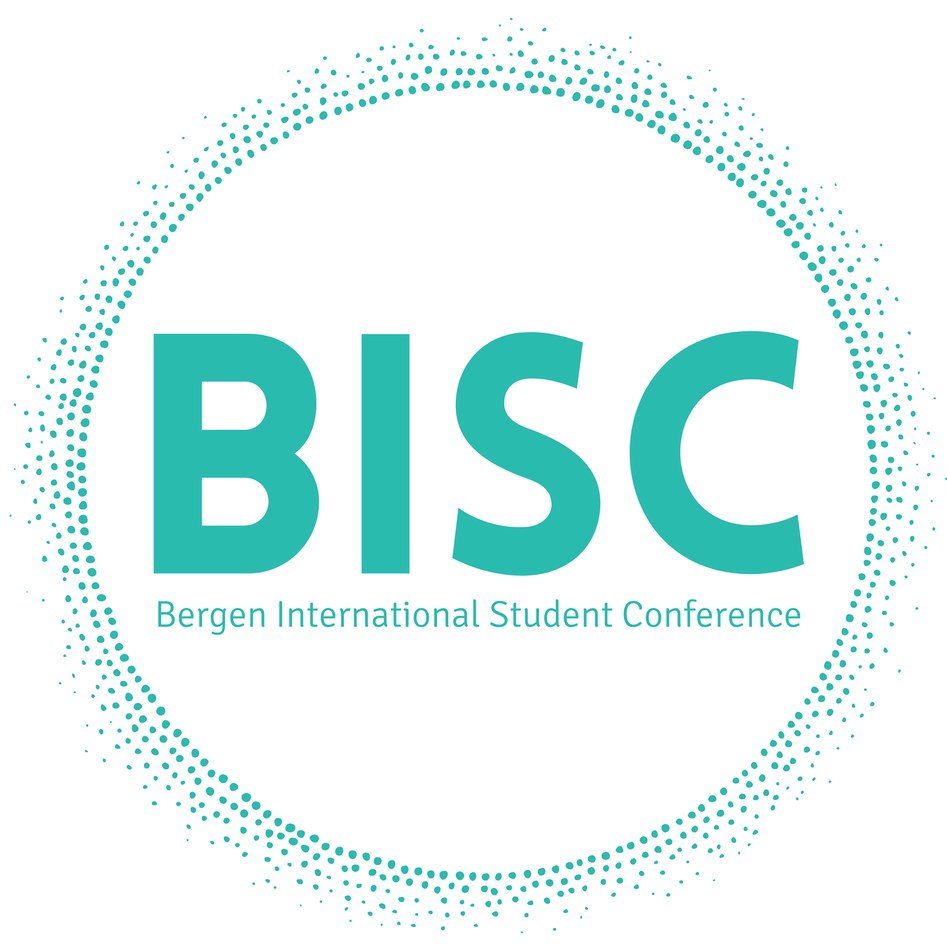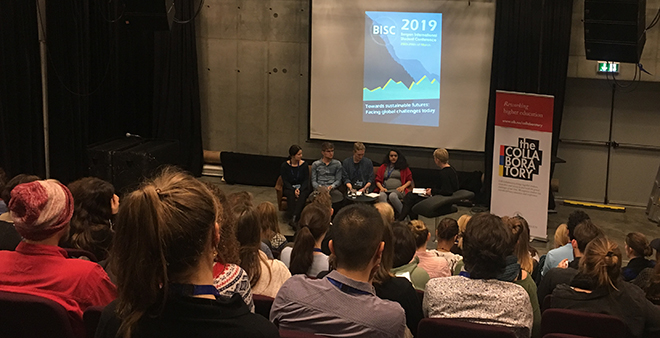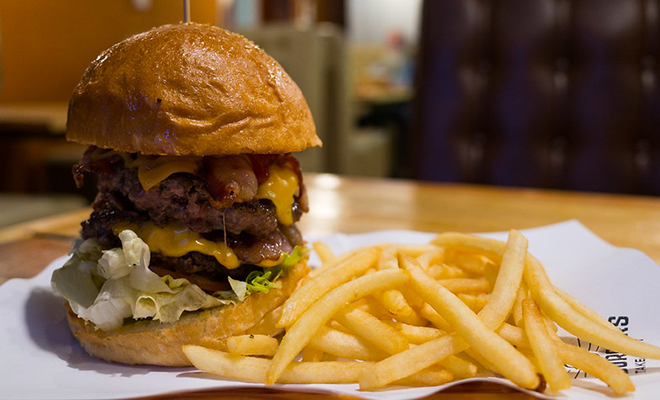Youth activism has been in the spotlight over the past few months. From the strikes in front of the Swedish parliament, to the campaign for the Green New Deal in the United States, youth activism has become a much-needed adrenaline shot to bring innovative solutions that are needed.
In an increasingly warmer world, the opportunity gap to avoid a radical anthropogenic climate disruption is rapidly closing for us all. Following the spirit of these recent student mobilisations, we attended the Bergen International Student Conference (BISC) on Sustainable Futures: Global Challenges Today, celebrated in Bergen on the 27th and 28th of March.
Support youth to solve planetary challenges
 BISC is a conference by and for students. The conference offers a platform of mutual learning and exchange of knowledge, experiences and ideas across a wide variety of fields and public. It aims at connecting young people in the effort to develop innovative and transformative means to address planetary challenges: from the local to the global level.
BISC is a conference by and for students. The conference offers a platform of mutual learning and exchange of knowledge, experiences and ideas across a wide variety of fields and public. It aims at connecting young people in the effort to develop innovative and transformative means to address planetary challenges: from the local to the global level.
Young people today still have underutilized potential to contribute to this. We believe that they have the creativity, mind-set, and abilities to take on a more active role in education, collaboration and knowledge sharing within and outside the field of academia. Their research and their innovative projects should be prioritised so that their results can transcend the publication in impact journals, permeate down to civil society and thus become an enabler for social, economic and political transformation.
Dialogue across disciplines
Even if BISC was indeed a conference, its main goals transcended the conventional objectives of conventional academic gatherings and discussions. BISC can be understood a space for deep engagement and collaboration through discussions, workshops, and presentations not only of ongoing research but of digital platforms and social innovative products as well.
The participants came from many different countries and academic backgrounds, yet amidst the diversity we have been trying to find common ground between typically separated disciplines and knowledge systems. This allowed a dialogue to happen in panel sessions, such as; human agency, participatory development, technological innovation, food and agriculture and urban transformations. A dialogue that also engaged in its own contradictions and which, therefore, was paradoxically both within and outside academia.

However, it is precisely engaging in its own contradictions that knowledge is generated. Wording the Catalan activist David Fernàndez: in life, less than five contradictions equals to dogma.
Ethical engagement is key
What we bring home is that we need to move away from exclusively intellectual problem solving and dive into the experiential realm as well. As James Joyce wrote in Ulysses, “void awaits surely all them that weave the wind”. Students have the potential to avoid the void and bridge the gap by engaging with the wider community. We have seen that both ethical and active engagement of young people are preconditions for a trajectory of building a more just, equal and ecological-conscious world. The responsibility to act lies in the hands of all of us.
As Barry Commoner stated in The Closing Circle:
"if we would survive and preserve both our natural heritage and our own humanity, we must at last discover how to solve, by social means, the social evils that threaten both."
In a world utterly collapsed with information and data, but nevertheless more and more misinformed, BISC participants all agreed that time has come to get our hands dirty!





